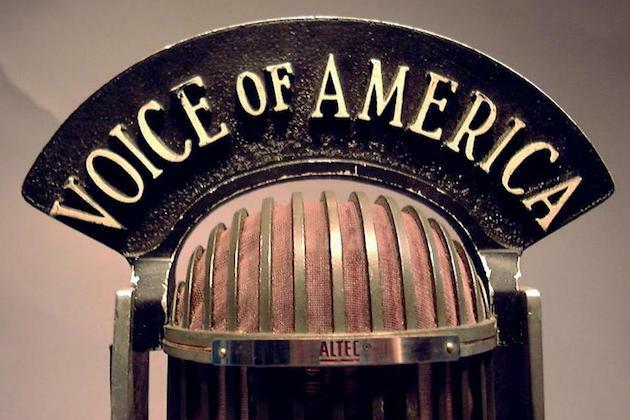Spanish speakers in Philadelphia break traditional rules of formal and informal speech in signs around town
The Conversation
18 Mar 2025, 12:51 GMT+10

I've discovered something fascinating about how Spanish speakers in Philadelphia address each other and communicate through public signs.
The discovery is part of my research on language patterns in Philadelphia - and it challenges what many students learn in Spanish class.
Remember those lessons where you learned to use the formal "usted" with strangers and "t" with friends? Well, the signs on Philadelphia's streets show that Spanish speakers actually use pronouns differently.
In Spanish, unlike modern English, speakers must choose between different ways of saying "you" when addressing someone. Some Spanish dialects use up to four different forms - "t," "usted," "vos" and the Colombian "sumerce" - but the Spanish speakers writing signs in Philadelphia have settled on just two: "t" and "usted."
But here's where it gets interesting: In Philadelphia, the choice between these forms doesn't follow the traditional rules we all thought we knew.
After analyzing 250 signs across three neighborhoods with a significant number of Spanish speakers - the Golden Block, in North Philadelphia; Olney, in North Philadelphia; and South Philadelpha's Italian Market corridor - and online spaces such as social media from different Hispanic organizations in the city, I found some surprising patterns in how these forms are used.
Bilingual signs written in both Spanish and English tend to use the verb form associated with formal "usted" - imagine a store window announcing, "Please wear a mask / Por favor, utilice una mascarilla." But signs written only in Spanish often use the informal "t," even when addressing strangers. This challenges the common assumption that we should always use formal language with people we don't know.
My study suggests the purpose of the message matters more than formality. When signs make requests, they typically use "usted." But when they're trying to persuade or invite people to do something, "t" is more common. A sign saying, "Please wait to be seated" typically uses "usted," while one saying "Join us for our grand opening!" uses "t."
Philadelphia's Spanish-speaking history stretches back to the late 1800s, with waves of migration bringing distinct varieties of the Spanish language to the city.
Puerto Rican communities arrived in the 1940s and '50s, followed by Colombians in the '70s and '80s, and more recently, Mexican and Central American immigrants in the early 2000s.
What's particularly noteworthy is the absence of "vos" in these signs, despite Philadelphia's significant Salvadoran population who traditionally use this form. This suggests newer communities are adapting their language in signs to match the more established Spanish-speaking groups in the city.
These findings tell us something important about language in immigrant communities.
Rather than creating an entirely new dialect, Philadelphia's Spanish speakers are finding common ground in how they communicate. It's a reminder that language rules are often more flexible than we think, shaped by real-world use rather than textbook guidelines.
The next time you're walking through Philadelphia's Spanish-speaking neighborhoods, pay attention to the signs around you. They're not just giving directions or advertising services - they're showing us how language evolves when different communities come together in a new home.
Read more of our stories about Philadelphia.
 Share
Share
 Tweet
Tweet
 Share
Share
 Flip
Flip
 Email
Email
Watch latest videos
Subscribe and Follow
Get a daily dose of Pittsburgh Star news through our daily email, its complimentary and keeps you fully up to date with world and business news as well.
News RELEASES
Publish news of your business, community or sports group, personnel appointments, major event and more by submitting a news release to Pittsburgh Star.
More InformationPennsylvania
SectionTrump administration pushes food firms to drop artificial dyes
NEW YORK CITY, New York: The Trump administration is pressuring major food companies to remove artificial dyes from their products,...
New York fires 2,000 prison guards after wildcat strike
ALBANY, New York: New York fired over 2,000 prison guards this week for not returning to work after a weeks-long strike that disrupted...
NBA roundup: Aaron Gordon leads short-handed Nuggets past Warriors
(Photo credit: Kelley L Cox-Imagn Images) Aaron Gordon scored a season-high 38 points, Russell Westbrook recorded a triple-double...
Spanish speakers in Philadelphia break traditional rules of formal and informal speech in signs around town
I've discovered something fascinating about how Spanish speakers in Philadelphia address each other and communicate through public...
(SP)U.S.-HOUSTON-BASKETBALL-NBA-ROCKETS VS 76ERS
(250318) -- HOUSTON, March 18, 2025 (Xinhua) -- Quentin Grimes (C) of Philadelphia 76ers goes for a layup during the 2024-2025 NBA...
Rockets set team comeback record, defeat 76ers in OT
(Photo credit: Troy Taormina-Imagn Images) Jalen Green had 30 points and 13 assists on Monday, helping the Houston Rockets stage...
International
SectionIsrael resumes war on Gazan Strip
In spectacular fashion, Israel has upended peace talks and brought to a dramatic end the ceasefire that had paused 15-months of carnage...
45 universities under probe by Trump administration for race policies
WASHINGTON, D.C.: The U.S. Department of Education is investigating 45 universities for possible violations of civil rights laws. ...
Gold surges past $3,000 amid global uncertainty
WASHINGTON, D.C.: Gold prices have shattered the US$3,000 per ounce barrier for the first time, driven by escalating geopolitical tensions...
Trump administration pushes food firms to drop artificial dyes
NEW YORK CITY, New York: The Trump administration is pressuring major food companies to remove artificial dyes from their products,...
Lawmakers debate military expansion amid European security fears
BERLIN, Germany: German Lawmakers are debating whether to loosen the country's strict borrowing rules to fund military expansion. ...
Trump to end U.S. government international news services
The Voice of America may not live up to its ambitious name for much longer. Michael Abramowitz, the director of VOA, said in a Facebook...











